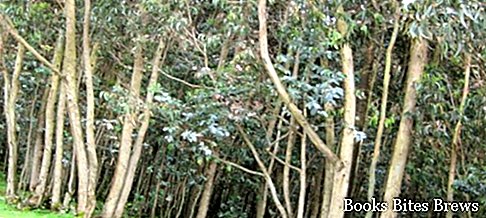What is eucalyptus used for, what are the characteristics of the tree and the therapeutic properties of its leaves, used to treat various ailments, in the form of infusion, decoction or powder.
Eucalyptus characteristics
Evergreen tree characterized by rapid growth that makes it reach in just 7 years about twenty meters in height, eucalyptus in some geographical areas, including Australia, which is its homeland, can reach maximum heights of even 90 m.
The trunk has a smooth ash-gray bark, while the wood is reddish.
The juvenile leaves are opposite, oval and without petiole, while the adult leaves are alternate, sickle-shaped and asymmetrical, with a petiole about 3 centimeters long.
The flowers are solitary or grouped in small inflorescences of 2 or 3 flowers.
The whole plant gives off an aromatic odor, among the parts that compose it the leaves are appreciated, useful for various types of preparations.
Among the properties of Eucalyptus, those that make it a good antiseptic and anti-catarrhal are distinguished.
It is also used in the treatment of diseases related to the respiratory system, as it acts against cough by promoting expectoration, it is also particularly indicated in the treatment of bronchitis.
It is also useful in bladder phlegm and urinary tract diseases.
There have also been moderate results in diabetes and against malaria.
It acts as a dewormer against the miner's anemia agent.
Recommended readings- Barberry: what it is used for, therapeutic properties of berries
- Mallow: what it is used for, therapeutic properties, infusion, decoction
- Holly: meaning, properties, infusion
- Birch: tree characteristics, herbal tea leaves, charcoal
- Absinthe: what it is, characteristics of officinal herb
If used externally, it has antiseptic and astringent properties, which is why it is indicated to treat slow healing sores.
The methods of use include that for making an infusion, a drink that is obtained by calculating 4 tablespoons of crushed leaves for each liter of water, to be taken in the quantity of 4 cups per day.
For a decoction 20 grams of leaves are needed for a liter of water, a preparation to be used as a dewormer.
Eucalyptus powder is useful as an anti-catarrhal, to be taken in the quantity of about 3 grams per day.




